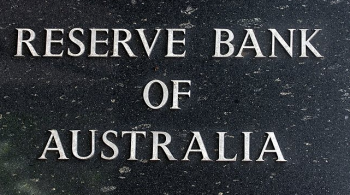
Should interest rates be lower?
The Reserve Bank of Australia (RBA) surprised the market this week by not lowering official interest rates. While the RBA statement did note that the Board would have a think about lowering rates in the period ahead, the market was pretty sure a cut was in the bag. As a result, a Tuesday morning rally in the equity market made a sudden about face when the news was released.
The interest rate discussion is a complex one, with many factors pointing in different directions. It’s one that we usually like to stay out of, preferring to limit our commentary to topics we know a little more about. However, there is one aspect of interest rate policy that we have a pretty clear view of from where we sit. It doesn’t rate a lot of attention in the RBA statement (approximately half a sentence), but it should interest you as an equity investor.
I’m referring to equity prices. The RBA has noted that prices for various assets, including equities as well as residential and commercial property, have risen, in part as a result of declining interest rates.
The thing that may be worth pointing out is that they have risen by really quite a lot. Since the middle of 2012 the Australian equity market has returned close to 20 per cent per annum, almost double the return that might normally be expected. It has done this despite anaemic growth in Earnings Per Share, which means that the return has been delivered predominantly through multiple expansion, rather than increasing underlying value.
It appears that a lot of this is due to demand from investors who need income yield, and can’t find it in cash as they once did. The net result of this “search for yield” is that many of the stocks we analyse today appear worrisomely expensive. One suspects that if we were to analyse value in the property market, the results would be equally worrisome.
So when it comes to the question of whether interest rates should go even lower, it seems the equity and property markets could probably put their hand up here and say “we’re fine for the moment, thanks.”
And by fine, I mean that record low interest rates have pushed a large body of vulnerable investors a fair way up the risk curve, into a potentially dangerous position. Hopefully policy makers have some regard to getting them get back down in an orderly fashion.
Tim Kelley is Montgomery’s Head of Research and the Portfolio Manager of The Montgomery Fund. To learn more about our funds please click here.
xiao fang xu
:
“US interest rates are EXPECTED to start to rise this year”
“The Federal Reserve System cannot raise rates. It only pretends that it can.
It cannot raise short-term T-bill rates. It has no power over T-bill rates.
It can raise the Federal Funds rate: the rate at which commercial banks lend overnight money to other commercial banks. Problem: banks no longer lend overnight money to other banks. There is no demand for these loans.”
The FED has no control over long-term rates.
So, exactly how will the FED raise rates? Which rates?
By waving a magic wand?
The FED can announce: “Short-term rates, rise!” Then what will happen?
Nothing.”
Tim Kelley
:
Hi Duncan,
Low interest rates and rising asset prices are indeed a global phenomenon, and this is certainly contributing to the Australian experience. It may be that we should not expect much change domestically until there is change more broadly.
Having said that, US interest rates are expected to start to rise this year. It will be interesting to see how markets react.
Duncan Lenton
:
Hi Mr Kelly
Are America and U.K markets over heating to the same degree as in Australia?
Most investors aren’t value investors (daft!!) They take their queue from charts and overseas market fluctuations.
If America and U.K are on lower interest rates and there are investors with cash to invest, then do we need to worry at this moment in time about the high value of stocks relative to intrinsic value?
I hear, all be it less regularly at the moment, that Australian investors are still holding a lot of cash? if this is the case then where is the cash going to work hardest for them?
Thanks for you time
Dunc